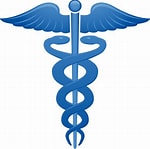 by James C. Sherlock
by James C. Sherlock
Reporter George Copeland Jr. of the Richmond Free Press (RFP) has alerted its readers, of which it claims 135,000, and Virginians as a whole, to a very promising Richmond healthcare initiative.
Richmond’s new Health Equity Fund (HEF) is managed by Richmond and Henrico Health Districts (RHHD), a local agency of the Virginia Department of Health (VDH). Funding decisions will be made in partnership with a Community Advisory Committee for which the HEF is accepting nominations.
So far RHHD appears to have shown excellent judgment.
The Health Equity Fund is a City of Richmond program to spend $5 million in federal American Rescue Plan Act money, so it relates funding to COVID, but that is a bureaucratic necessity. So, while RHHD serves all of Richmond and Henrico, the HEF will consider and fund only projects taking place within the City of Richmond.
But they are doing the right thing regardless of the regulations that come with the money. The programs are community focused and community executed.
I congratulate the RHHD, the mayor and the Richmond City Council for this initiative.
I suggest RHHD, together with the VDH and the Department of Medical Assistance Services (DMAS), collect metrics that can justify expenditures by the state through the Medicaid program to provide continued support to the recipient programs proven to work.
The first three programs funded with HEF dollars as reported by Mr. Copeland are:
- Crossover Healthcare Ministry was granted $50,000
to provide bilingual medical assistance and increase its capacity when it comes to testing, vaccinations, and educating patients and the community at large.
- Nolef Turns was granted $90,000
to provide crisis and transitional shelter assistance to Richmond residents exiting incarceration who have a history of or an increased likelihood of substance abuse. Assistance will range from harm reduction and social services support, to rental aid and case management.
- The Richmond Behavioral Health Authority was allocated $90,000
for a full-time clinician to ensure they can provide their mental health services in RHHD Resource Centers in the city’s public housing and lower-income communities.
HEF program objectives and investments so far demonstrate both elements of Maryland’s enormously successful, popular and cost-effective Health Enterprise Zones (HEZs) program.
It is not surprising.
Dr. Danny Avula, now the state’s Commissioner of the Department of Social Services, was Director of RHHD from March 2016 until February 4 of this year. In January 2021, he was temporarily appointed to fix the state’s worst-in-the-nation COVID-19 vaccine program. He proved very successful in getting that done. The HEF program bears the earmarks of his leadership.
Over time, some of these investments will succeed. Others may not.
There are ways to collect data and compute ROI on these investments that will treat the HEF investments as pilots and provide evidence to support the continuation of the best of them with state money.
I suggest we do it. I hope we already are.


